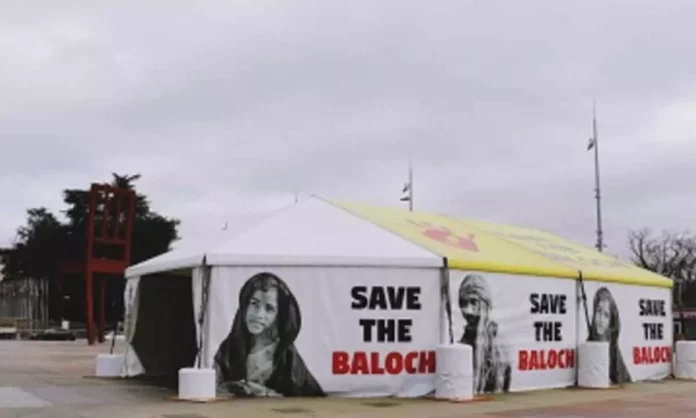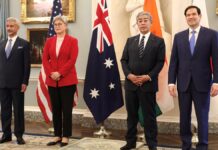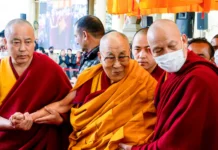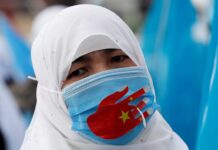NEW DELHI: Balochistan, a region ensnared in the clutches of an oppressive military regime orchestrated by Pakistan and its intelligence agency, grapples with dire consequences befalling its people.
The sweeping impact of this security apparatus manifests in the recurring horror of forced disappearances and the tragic reality of extrajudicial killings that systematically target the Baloch populace.
In the crucible of this turmoil, the Human Rights Department of the Baloch National Movement (BNM), through its recently unveiled report known as Paank, unveils the intricate human rights landscape in Balochistan for the month of February 2024. This comprehensive document not only sheds light on a disconcerting surge in enforced disappearances but also delves into an insightful examination of the multifaceted challenges confronting the local population.
Throughout the course of February, Balochistan witnessed a distressing total of 33 meticulously documented cases of enforced disappearances spanning diverse regions. Notably, within this grim scenario, 28 individuals were allegedly subjected to forced disappearance, a routine affair, managed to eventually secure release from the confines of torture cells, underscoring the arbitrary and often unjust nature of such actions.
Further, five individuals have been falsely labeled as attackers and were killed in an operation to show the Balochis as a revolutionary force working against the interest of the Pakistan.
In a parallel narrative, the ‘Voice for Baloch Missing Persons’, a non-profit organisation steadfastly committed to advocating for the families of those who were missing in Balochistan, reveals a staggering statistic.
Since 2004, an estimated 7,000 cases have been reported to them, painting a grim picture of the pervasive crisis. In stark contrast, the government’s Commission of Inquiry on Enforced Disappearances acknowledges a significantly lower figure, officially recognising 2,752 ongoing cases as of January 2024.
The stark contrast in reported numbers highlights the profound severity of the Human Rights crisis and the relentless oppression endured by the people of Balochistan.
This dissonance underscores the critical need for transparent and accurate information to address the pervasive brutality and enduring hardships faced by those deeply affected in the region.
The incongruity not only questions the reliability of official records but also emphasises the urgency of a thorough and impartial investigation into the intricate dynamics surrounding enforced disappearances in Balochistan.
Beyond the statistical discrepancies, the aftermath of the conflict between the Pakistan Army and Baloch freedom fighters in Mach reveals another layer of distressing developments.
In this instance, five individuals, previously subjected to forced disappearances and held in custody, were unjustly labeled as attackers, subsequently falling victim to extrajudicial execution. This harsh reality underscores the precarious environment in which the Baloch people not only grapple with the threat of disappearances but also face the danger of unfounded accusations, resulting in fatal consequences after conflicts with military forces.
Delving into the intricate complexities of the human rights crisis in Balochistan unveils a narrative that extends far beyond the stark statistical figures. At its core lies a mosaic of human stories, each marked by profound suffering, unwavering resilience, and an urgent quest for justice.
Families torn apart, communities shattered, and individuals thrust into the shadows epitomise the unseen consequences of an unchecked security apparatus, creating a haunting tapestry of human tragedy.
The urgency of the situation beckons for a collective response from the international community. The pervasive violations in Balochistan not only defy fundamental human rights principles but also challenge the very essence of a just and equitable society.
As the Baloch people grapple with the harrowing realities of enforced disappearances, extrajudicial killings, and the pervasive culture of fear, the global community must elevate its voice in a unified stance for justice and accountability.
Balochistan’s plight stands as a poignant reminder of the profound human cost incurred due to geopolitical conflicts and power struggles.
The intricate tapestry woven by enforced disappearances and extrajudicial killings transcends mere statistics, revealing a deeply entrenched narrative that demands collective action. It serves as a compelling call to those championing human rights, urging them to actively contribute to the construction of a world where justice triumphs over oppression.
The relentless oppression imposed by the Pakistan army and its intelligence agency over the years has given rise to pro-freedom groups, with the Baloch Liberation Army emerging as a prominent force.
Driven by the aspiration to liberate Balochistan from the clutches of Pakistan and its oppressive tactics, these pro-freedom groups, have repeatedly confronted the Pakistan Army, seeking an amicable solution to the oppression and suppression of the Baloch natives.
On ground, these efforts seem to have yielded tangible results, with many successful operations by the pro-freedom armed groupsleading to the seizure of military posts and weapons.
The various articles and blogs on these subjects gives a fair indication that despite Pakistan Army’s recent operation in Balochistan to quell the unrest, people of Balochistan are hopeful to break free from the shackles of endless oppression imposed by the Pakistan army and ISI.
The experts feel that the pro-freedom groups is likely to persist in their pursuit of justice and liberation, till end of suppression and oppression, which is highly unlikely given the Army’s say in the matters of governance and security in the present government.
Also Read: Baloch genocide: How will it stop?







